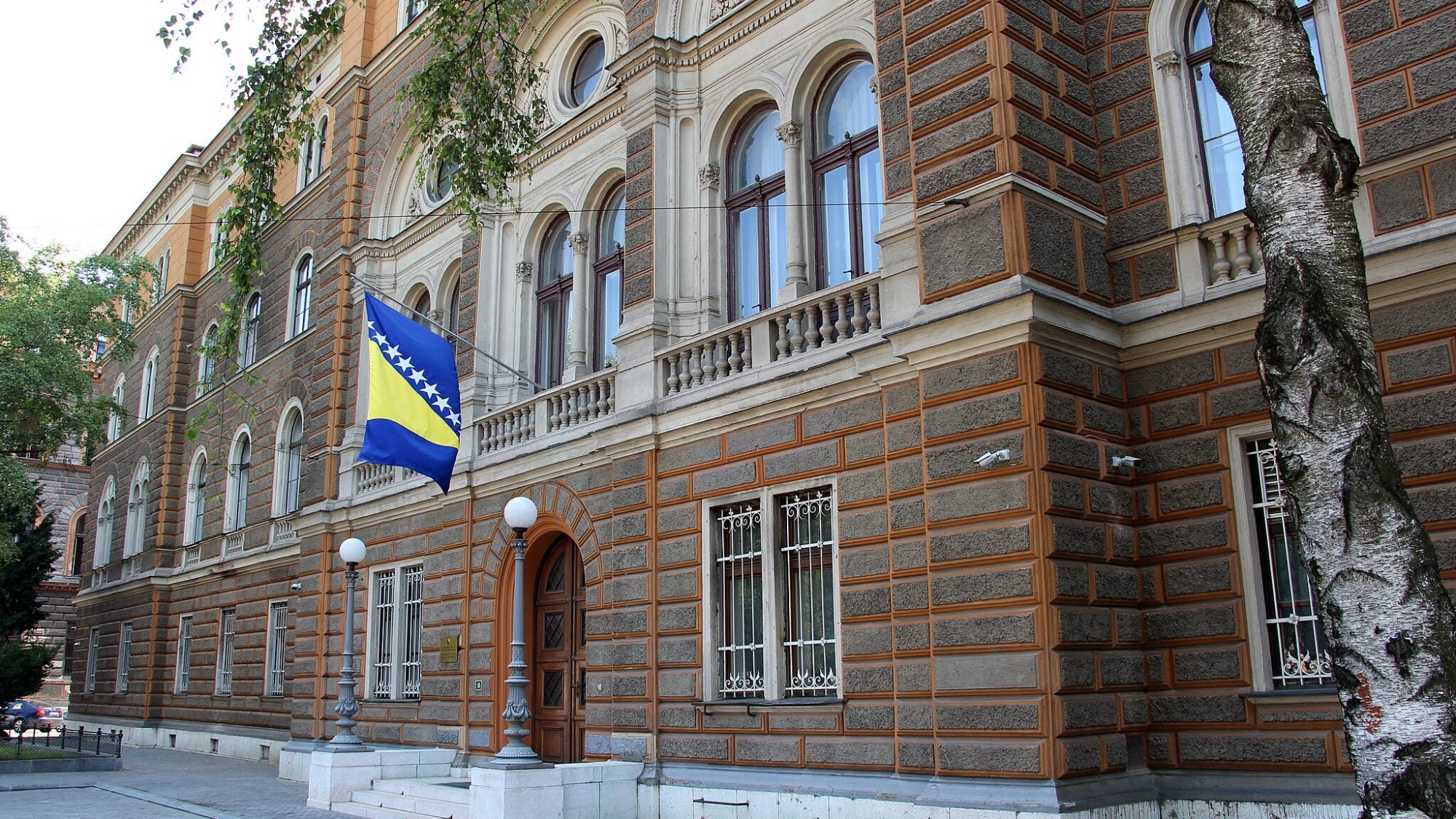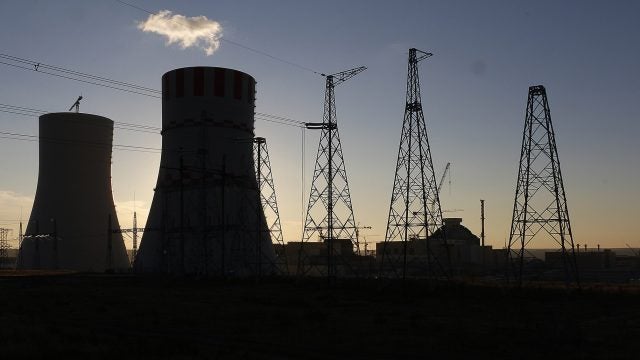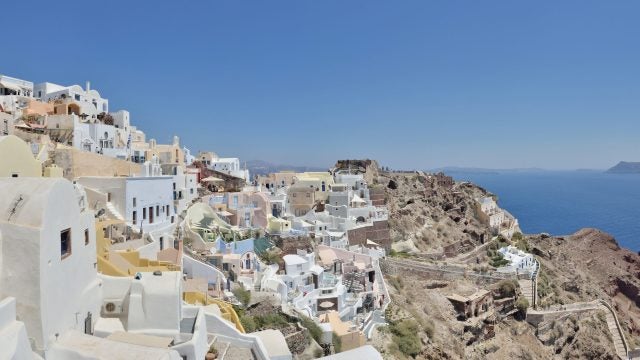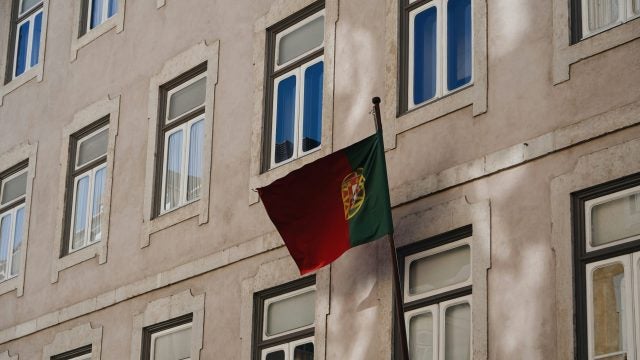
Title: Dr. Nedim Hogic on Corruption and Foreign Influence in Bosnia and Herzegovina
In this interview, Dr. Nedim Hogic shares his perspective on the structural causes and consequences of corruption and foreign influence in Bosnia and Herzegovina. He emphasizes the need to expand the EU’s rule of law framework in order to develop a more effective anti-corruption policy. Dr. Hogic also explores how foreign influence has shaped Bosnia and Herzegovina internal affairs and how that influence has evolved since the start of the Russia-Ukraine war.
GJIA: In Transparency International’s 2023 Corruption Perceptions Index, Bosnia and Herzegovina received a score of 35 out of 100, which is seven points lower than the score it received in 2013. What are some of the structural factors within the Bosnian government that are contributing to the worsening corruption?
Nedim Hogic: Corruption has not significantly worsened. Rather, the perceptions of individuals regarding corruption have become more pessimistic. Both citizens and foreign observers are more aware of the degree to which the state and society are captured by corruption.
One of the structural factors contributing to the high level of corruption in Bosnia and Herzegovina is the country’s strong and unusual susceptibility to foreign influence and lobbying. Created in the 1990s to facilitate peace in Bosnia, the Office of the High Representative is the highest political authority in the country. It serves as an agent of the international community and makes Bosnia and Herzegovina a de facto protectorate. The problem is that the international community has become increasingly fragmented over the last 30 years, leading to the rise of foreign influence as a preferred tool for political engagement. The strong ethnic divisions within the country further contribute to the presence of foreign influence. Bosnia and Herzegovina essentially has three foreign policies—one for each of its dominant ethnic groups—because the different groups often align with competing foreign powers.
Another part of the problem is Bosnia and Herzegovina’s rather complex governance structure. The country functions as a multi-level federation with numerous state and canton subunits. This division of powers allows a certain degree of transparency and prevents complete kleptocracy since no level of government can achieve much progress on its own. At the same time, this structure decreases the probability of politicians fighting corruption at their own cost. As a result, there are fewer anti-corruption champions.
To make matters worse, the country has not joined the European Union. The EU’s policy to integrate Bosnia and Herzegovina remains unfinished for several reasons. First, the European Union is not fully committed to its own enlargement. Second, proponents of integration face strong structural opposition in Bosnia and Herzegovina, and in the Balkan region more generally. Third, foreign influence inhibits the standardization of anti-corruption procedures, regulatory capitalism, and free market economics. All of these factors have contributed to why Bosnia and Herzegovina is perceived as a corrupt country, and indeed why it is corrupt.
GJIA: You mentioned that the European Union is not fully committed to Bosnia and Herzegovina’s transition and integration. What are some of the policies that the European Union should implement towards Bosnia and Herzegovina regarding corruption? What has inhibited the EU’s ability to institute these policies thus far?
NH: As stipulated by Chapters 23 and 24 of the EU Acquis, countries that aspire to join the European Union must develop adequate protections against infringements on justice, security, and fundamental rights of citizens, in addition to instituting judicial reforms. Although a candidate country should theoretically implement these changes within all governing institutions, the European Union has historically accepted a narrow conception of the rule of law limited to securing judicial independence. I am not suggesting that judicial independence is not important. It certainly is. However, Bosnia and Herzegovina has made significant investments to enhance the capacities of local officials to combat corruption, and their independence is arguably in line with EU standards. There is great evidence testifying to the existence of independent judges and prosecutors and of many cases of political corruption being prosecuted.
The problem, however, is that the European Union failed to realize that democracy and the work of democratic institutions are equally important to establishing the rule of law. In Bosnia and Herzegovina and elsewhere, the European Union did not pay adequate attention to democratic procedures, such as financing political parties and the operation of the parliament more generally. How can you have the rule of law if you are only concerned with the implementation and interpretation of a small section of laws, as opposed to the entire law-making process and the degree of citizen participation?
The expectation that judges and prosecutors alone can combat corruption and prosecute corrupt individuals is evidently problematic. In Romania, for example, successful judiciary reform was bolstered by economic growth. Unlike Bosnia and Herzegovina, Romania joined the European Union in 2007 and benefited from the influx of European funds. By aiding economic development, these funds reduced many of the structural causes of corruption. As I said, Bosnia and Herzegovina never joined the European Union, and these structural and cohesion funds never became available; poverty and the presence of foreign investments were left unaddressed. Therefore, a narrow conceptualization of the rule of law, focusing solely on judicial reform, has contributed to the marginal impact of anti-corruption measures. In the last two or three years, there have been attempts to remedy this misconception and look more closely at what non-judicial institutions should be doing to aid these efforts.
GJIA: How has the war in Ukraine impacted foreign influence in Bosnia and Herzegovina?
NH: Russia was always supportive of secessionist claims in Bosnia and Herzegovina, especially those made in the Serb-dominated part of the country. Before Russia’s invasion of Ukraine, foreign actors did not take these claims seriously. Since the invasion, however, the West has actively sought to curb Russian influence in the region by instituting sanctions. There is now a greater awareness of hybrid threats, such as Russian disinformation and the network of people working for Russian interests.
While Russia’s ability to influence Bosnian and Herzegovinian affairs has decreased since 2022, many observers still see a potential for Russia to exploit the general instability of the Balkans through other means. For example, Russia can still manipulate its proxies in the region. These proxies include pro-Russian political parties—such as the Alliance of Independent Social Democrats in Bosnia, the Democratic Front in Montenegro, and the Socialist Movement in Serbia—as well as fringe groups that recruit volunteers to fight for Russia in the Russia-Ukraine war. Many people also believe that Russia sponsored minor-scale terrorist attacks on the border between Serbia and Kosovo. All of these efforts are geared towards increasing regional instability and sabotaging the efforts of the West.
GJIA: In response to these efforts, has US foreign policy changed in the past few years?
NH: The implementation of targeted sanctions against individuals who engage in corruption and cultivate relations with Russian actors has been helpful. Compliance has been particularly strong in the banking sector, which, due to its high exposure to Western-owned capital, abides by these sanctions for its own safety. This is why we have seen many of the people listed by the United States as corrupt individuals being denied the ability to operate through Bosnian and Herzegovinian banks. This raises serious human rights concerns, but this is not a specifically Bosnian problem. We have seen the issue of sanctioned individuals in other countries, and again, all these individuals have had an opportunity to negotiate their way out of these situations.
The United States has always viewed the situation in the Western Balkans through a prism of security, prioritizing short-term stability over economic development and European integration. Within the Biden administration, there was a consensus that a full anchoring of the Western Balkans within the European Union benefits the region, the United States, and the European Union while limiting Russian influence. It is unclear whether the Trump administration will depart from this approach and reduce sanctions that were previously instituted to help limit the power of corrupt government officials.
GJIA: Have these economic tools of leverage similarly targeted China, or are they geared more strongly towards combating Russian influence? How different is US policy towards these two countries in the Balkans?
NH: The Chinese have greater leverage because they have more effectively entrenched themselves in the Bosnian and Herzegovinian economy. Chinese companies have started many long-term mining projects, enhancing their economic influence for the foreseeable future. Also, many Chinese companies were subcontracted using funds provided by the European Bank for Reconstruction and Development, because they can construct infrastructure cheaper and more efficiently. So, the United States, in that sense, has a limited ability to remove Chinese influence completely.
Despite these challenges, the United States has attempted to reduce Chinese influence by sponsoring investigative journalists who expose environmental and political infractions related to Chinese investments in the Balkans. It is difficult to determine whether these efforts limited further Chinese intrusion in the Balkans.
GJIA: To what extent would you say foreign influence is tied to ethnic and political divides in Bosnia and Herzegovina?
NH: Unfortunately, foreign influence is significantly tied to ethnic divides. The three main ethnic groups in Bosnia and Herzegovina—the Bosniaks, Serbs, and Croats—do not always share a similar outlook on foreign politics. In general, the foreign influence of Russia is seen as more beneficial by the Serb-dominated part of the country. EU influence is seen more positively by the Croats and Bosniaks. US influence is seen most positively by the Bosniaks, a predominantly Muslim ethnic group that views themselves as US allies and considers US influence beneficial anywhere.
These contrasting views make it highly unlikely for the government to establish a coherent stance on foreign policy and malign influence. Traditionally, Chinese influence was not seen as partisan or ethnically divisive. That has changed in the last one or two years, with China taking controversial stances on important political issues to Bosniaks. This past May, China voted against the Resolution on the Srebrenica Genocide in the United Nations General Assembly, which was nonetheless adopted by majority votes. As a result, Chinese influence has arguably been impacted.
GJIA: Looking towards the future, how can Bosnia and Herzegovina counter foreign influence most effectively?
NH: You cannot simply avoid foreign influence when you want to be a member of the European Union and have an international structure led by the Office of the High Representative with the country. These factors obviously mobilize foreign influence, which by itself is not necessarily a bad thing. In Bosnia and Herzegovina, there is simply too much foreign influence. I would like to see the waning of Russian influence, followed by Bosnia and Herzegovina joining the European Union. Then, the country would be more influenced by Brussels, thereby decreasing the need for US security involvement.
GJIA: Lastly, you mentioned how that corruption has not necessarily worsened, but that perceptions of it have changed. Can you please elaborate upon this phenomenon?
NH: The ordinary people, I feel, have grown more pessimistic. Through my research, I realized that the problem with corruption is that it perfectly explains everything, thereby reducing the need—whether you are a journalist, a policymaker, or a researcher—to think about corruption in a nuanced fashion. This phenomenon, called reductio ad corruptum, is a narrative often used in political analysis, in which the inefficacy of a country’s entire political system is explained through the presence of high-level political corruption. Thus, individuals reduce everything to the idea that a political subject or entity is corrupt. I believe citizens have begun to explain the situation to themselves this way. This perception promotes greed, selfish behavior, and the brain drain.
Poverty is another important factor contributing to corruption in Bosnia and Herzegovina, and people do not often consider its impact. Poverty increases the demand side of corruption. In the absence of favorable socioeconomic conditions, people think that corruption is to blame for everything, and then they feel powerless and unwilling to join the fight against it. In that sense, large-scale judicial anti-corruption actions—rather than individual prosecutions—could help mobilize civil society organizations and citizens. A massive, targeted action against corrupt individuals, regardless of their political affiliation or membership to a certain ethnic group, would be a great trigger for ending impunity and presenting political accountability.
I studied anti-corruption campaigns in Romania, Italy, and Brazil, and it is clear that achieving political and legal accountability requires significant time, planning, and logistical capacities. But more than anything else, it requires a lot of faith for substantial progress to be made, even when results are not immediately apparent. People have faced many problems in all three of these countries when fighting corruption, but their campaigns have produced some implications: there is an end to impunity, and the anti-corruption fight is worth participating in. This is important for ordinary citizens to know, as we have seen much less genuine civic activism than we did 10 or 15 years ago.
…
Nedim Hogic is a legal scholar and corruption researcher, currently a research fellow at the University of Oslo, where he researches EU Anti-Corruption Law. He holds an LLM from Harvard Law School and a PhD in Law from Sant’Anna School of Advanced Studies. Hogic, a former Jean Monnet Fellow at NYU School of Law, has advised international organizations, political parties, and NGOs on issues related to democratic peacebuilding and good governance reforms in Southeastern Europe and Central Asia. His book, “Judicial Anti-Corruption Campaigns”, will be out later this year.
This transcript has been lightly edited for clarity and length.
Interview conducted by Sydney Pappas.
Image Credit: Fred Romero from Paris, France, CC BY 2.0, via Wikimedia Commons
Other Interviews

In this interview, Anatole Boute, a Professor at the Chinese University of Hong Kong specializing in energy, climate, and investment law, joins Shaimerden Chikanayev, a PhD researcher and…

An Interview with Dr. Othon Anastasakis, Senior Research Fellow at St Antony’s College and Director of the European Studies Centre and South East European Studies at Oxford University.

In an interview with GJIA, Portugal’s Ambassador to the United States, Francisco Duarte Lopes, discusses the success of the Portuguese economy, the country’s energy and digital transformations, and…